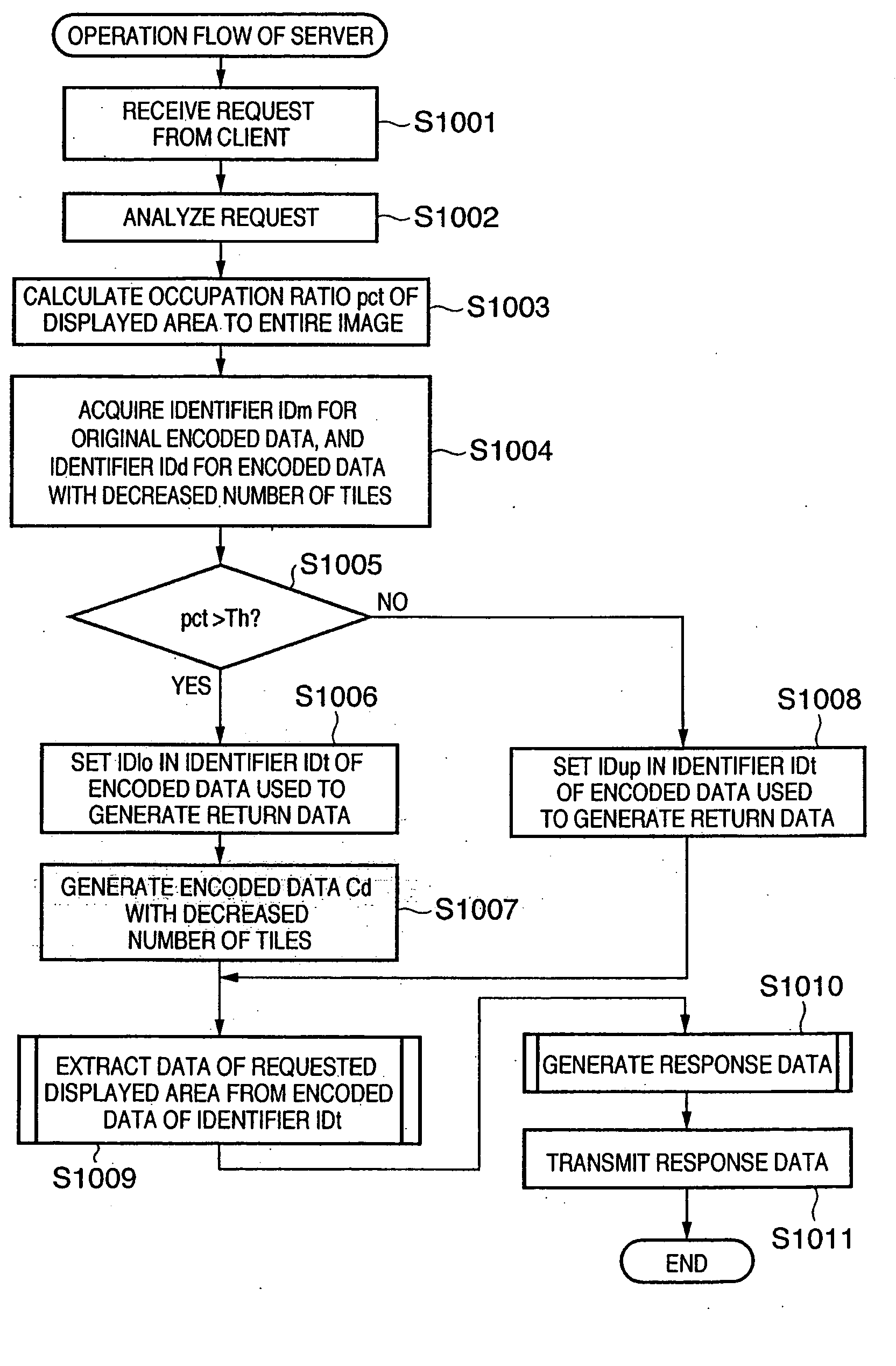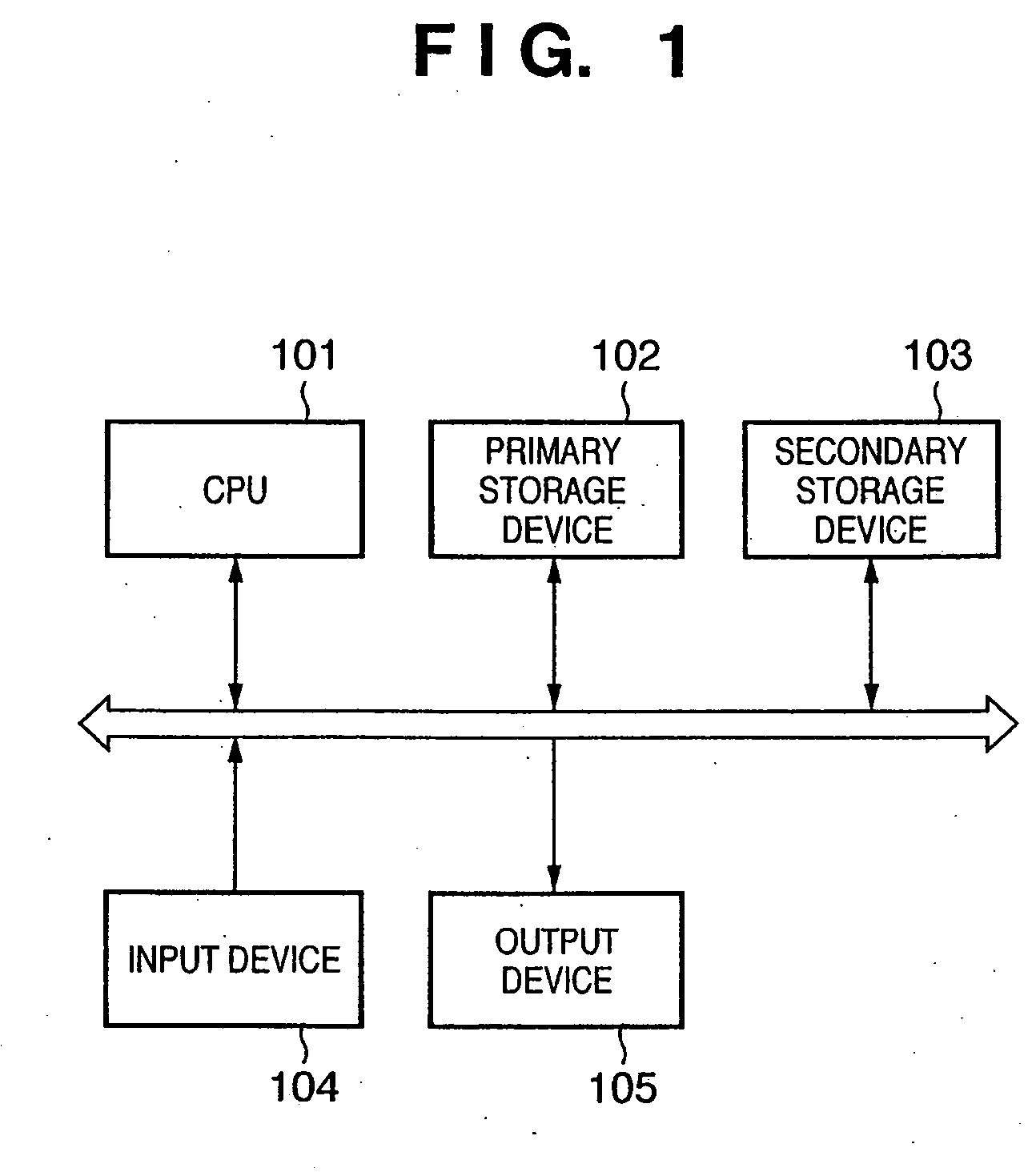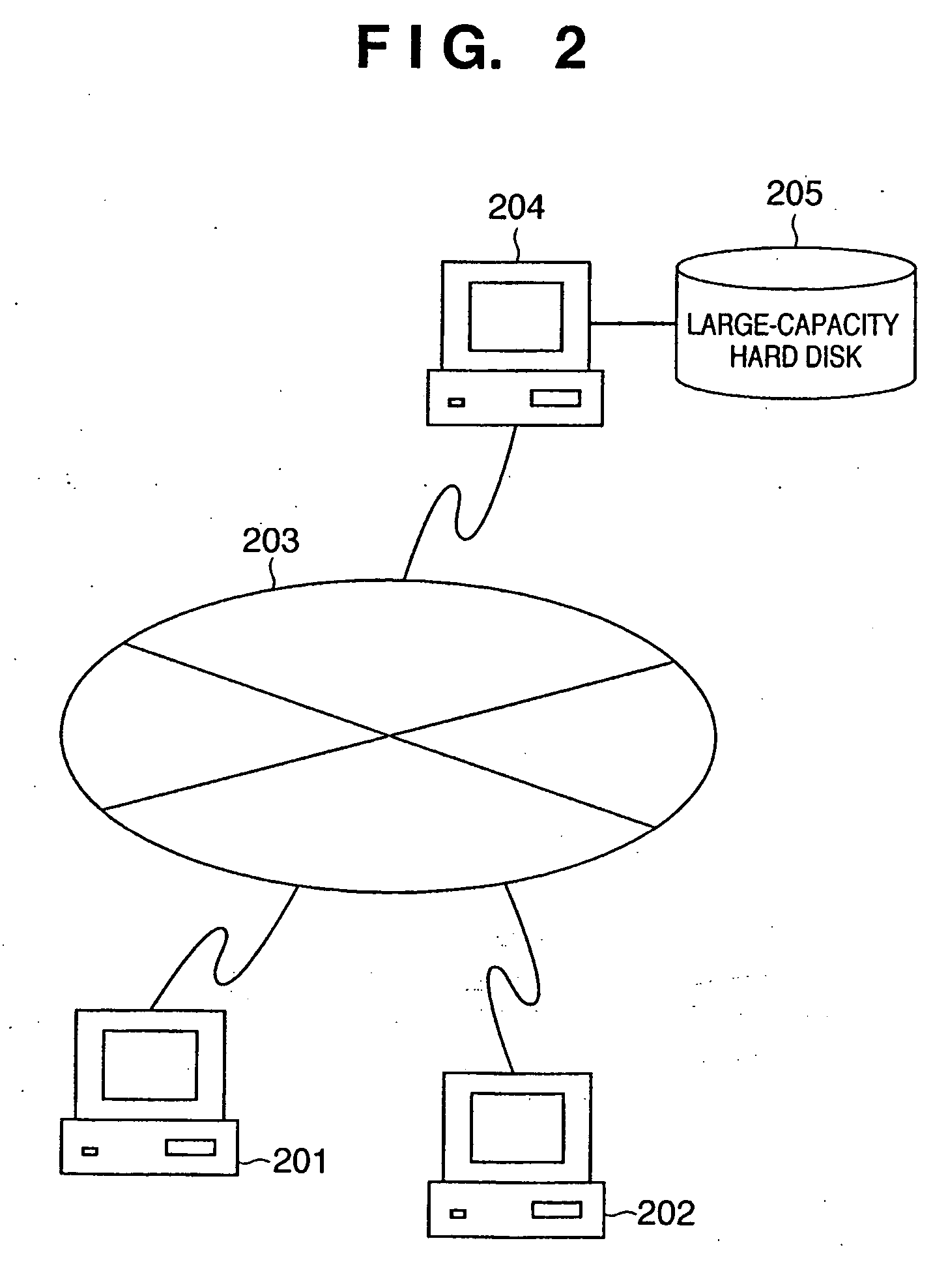Image processing method and image processing apparatus
a technology of image processing and image processing apparatus, applied in the direction of electrical apparatus, instruments, computing, etc., can solve the problems of wasteful data transfer, long wait time, long decoding time, etc., and achieve the effect of suppressing wasteful data transfer
- Summary
- Abstract
- Description
- Claims
- Application Information
AI Technical Summary
Benefits of technology
Problems solved by technology
Method used
Image
Examples
first embodiment
[0058] The first embodiment will explain a method in which upon reception of a request from a client, a server which holds a plurality of already generated JPEG2000 files analyzes that request, generates response data according to the request from a designated JPEG2000 encoded image, and transmits the response data to the client.
[0059] A case will be described below wherein the user who operates the client opens a given home page on the Internet, displays a thumbnail image according to link information used to acquire a JPEG2000 encoded image displayed there, then displays the entire image, and further displays a partial area of the image in an enlarged scale. In order to attain such image display, the client acquires data from the server using the mechanism of JPIP. Assume that a data transmission unit by JPIP is a packet.
[0060]FIG. 1 is a schematic block diagram showing the arrangement of a computer required to implement the server / client system according to the first embodiment...
second embodiment
[0176] In the first embodiment described above, images held by the server 204 assume JPEG2000 encoded image data in each of which an image is divided into a large number of tiles in consideration of random accessibility.
[0177] Note that some systems may use many images which are kept in relatively small sizes in list display in most cases, and only several ones of these images may undergo operations such as enlargement or the like. In such case, the server may hold JPEG2000 encoded images with a small number of divided tiles, and the number of tiles may be increased as needed. Hence, in this embodiment, each JPEG2000 encoded image data held by the server has encode conditions:
[0178] Maximum image size: 4064×2752 pixels
[0179] Tile size: 256×256 pixels
[0180] Number of tiles: 176 (=16×11)
[0181] Number of resolution levels: 5
[0182] Image sizes of respective resolution levels:
[0183] Resolution level 4: 4064×2752 pixels (tile size: 256×256 pixels)
[0184] Resolution level 3: 2032×13...
third embodiment
[0197] In the first and second embodiments described above, data held by the server 204 have common encode conditions. In some systems, common encode conditions may be used. However, in a system to which various images are uploaded, it is difficult to use common encode conditions of the images.
[0198] In this embodiment, assume that image data of various encode conditions are held on the server side. Assume that the arrangements of the server and client and that of the server / client system in the third embodiment are the same as those in the first and second embodiments shown in FIGS. 1 and 2.
[0199] In this embodiment, the server 204 calculates an occupation ratio pct of the displayed area to the entire image on the basis of the request from the client, and compares the calculated ratio pct with a predetermined threshold Th as in the first and second embodiments. As a result, if the value of the ratio pct is larger than the threshold Th, i.e., if the occupation ratio of the display...
PUM
 Login to View More
Login to View More Abstract
Description
Claims
Application Information
 Login to View More
Login to View More - R&D
- Intellectual Property
- Life Sciences
- Materials
- Tech Scout
- Unparalleled Data Quality
- Higher Quality Content
- 60% Fewer Hallucinations
Browse by: Latest US Patents, China's latest patents, Technical Efficacy Thesaurus, Application Domain, Technology Topic, Popular Technical Reports.
© 2025 PatSnap. All rights reserved.Legal|Privacy policy|Modern Slavery Act Transparency Statement|Sitemap|About US| Contact US: help@patsnap.com



